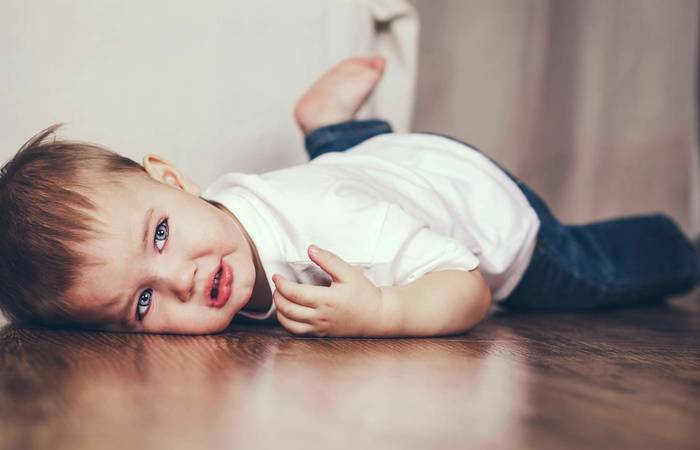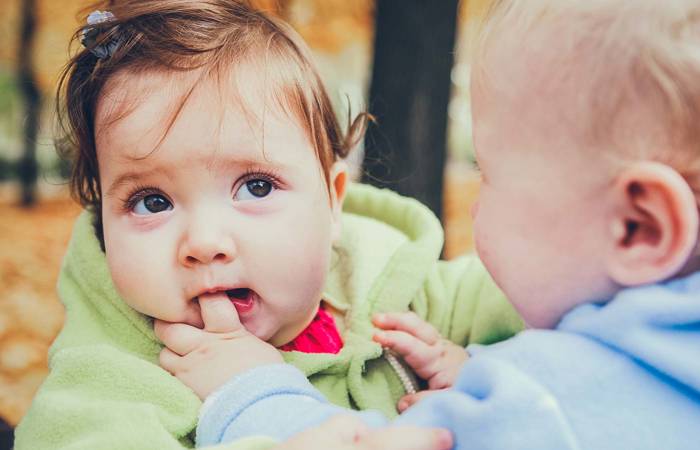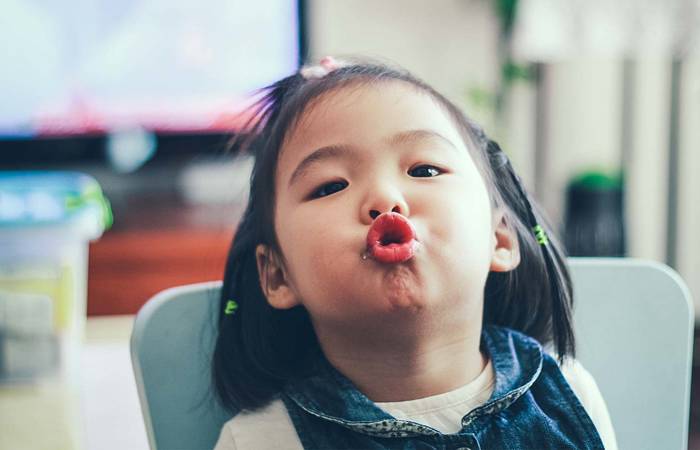Like what you see?
Sign up to receive more free parenting advice.
Thank you for subscribing to our newsletter!
Child Development

Credit: iStock.com/MachineHeadz
A significant proportion of Australian parents hold attitudes and beliefs in support of physical discipline, a national poll has found.
New findings from The Royal Children’s Hospital National Child Health Poll reveal that while half of Australian parents (51%) think it’s never okay to use physical discipline with a child, the remainder believe it is unrealistic to think that parents should never use it.
But at the same time the vast majority (95%) of parents use positive tactics to promote good behaviour in their children, including providing praise and positive attention.
The poll of 2,044 Australian parents caring for 3,545 children aged one year to under 18 found parents are struggling with the daily stress of trying to manage their child’s behaviour.
In particular it suggested that some parents still believed that physical discipline teaches a child to respect their parents (23%) and teaches a child self-discipline (23%).
A quarter of parents (26%) think children can become unmanageable without physical discipline.
One in three parents believe children should be on their best behaviour at all times – probably an unrealistic expectation given the normal range of child behaviours.
Managing behaviours can be stressful. If parents feel overwhelmed and are often losing their cool with their kids, they should reach out for help. Speak to friends and family or your GP for advice and support.Dr Anthea Rhodes
Stay up to date with the latest news and articles from First Five Years
Thank you for subscribing to our newsletter!
According to parents, in the month prior to the survey, 4% of Australian children were physically disciplined by their parents (quite a lot or most of the time), a further 13% were physically disciplined (some of the time), and a further 24% (rarely).
Younger children were more likely to experience physical discipline more often, with 7% of toddlers and preschoolers being physically disciplined (quite a lot) or (most of the time) in the past month.
The long-lasting negative effects of physical discipline
The poll report by Director and paediatrician Dr Anthea Rhodes states that research shows physical discipline can reduce self-esteem and make children fearful of their parents, and less likely to trust them.
Dr Rhodes says it also sets an example to a child that physical punishment, such as hitting or smacking, is a way to solve problems and settle conflicts. Children can then be more likely to use these means to settle their own conflicts with others, perpetuating patterns of problematic behaviour.
“Children behave in different ways depending on their age, temperament, developmental stage and the situation. It is normal for children to push boundaries and to have difficulty regulating their emotions,” Dr Rhodes says.
“Managing behaviours can be stressful. If parents feel overwhelmed and are often losing their cool with their kids, they should reach out for help. Speak to friends and family or your GP for advice and support.
“Punitive or negative discipline does not help children learn what is expected from them as it centres on what not to do rather than modelling or reinforcing desired behaviour.
“Physical discipline can have long-lasting negative effects on a child, including reduced self-esteem and psychological harm. Children who experience aggressive discipline are also more likely to develop aggressive behaviour themselves.
“Understanding the reasons for a child’s behaviour will help parents respond sensitively and more effectively to challenging behaviours.
“Children’s brains are wired for attention. The best type of attention to give a child is a positive response to desired behaviour as it encourages them to behave that way again. Praise, praise and more praise. If you see your child behaving well – praise them and tell them why.”
The poll showed a link between the parent’s experience with physical discipline and the use of it in their own family.
The majority (88%) of Australian parents report having been physically disciplined themselves as a child by their own parents - 7% most of the time; 14% quite a lot; 38% some of the time; 29% rarely.
Parents who reported physically disciplining their own children at least some of the time in the past month were more likely to report having been physically disciplined at least some of the time themselves as a child.
Many parents used both positive and negative strategies to manage challenging behaviour. Negative or punitive techniques used at least some of the time in the previous month included:
- Shouting or yelling at their child (61%)
- Making their child feel bad to teach them a lesson (35%)
- Threatening physical discipline (23%)
- Using physical discipline (17%) such as smacking, hitting, spanking, slapping, pinching or pulling
Majority of parents using positive tactics
In contrast, parents also reported using a variety of positive strategies to manage their child’s behaviour. The majority of parents report using strategies to promote and reinforce desired behaviour at least some of the time in the past month. They included:
- Giving their child praise or attention when they behave well (95%)
- Rewarding good behaviour with an activity together (84%)
- Talking with their child about the type of behaviour they expect (93%)
- Talking with their children about their feelings when they misbehave (85%)
- Implementing non-physical consequences for undesired behaviour, such as time out or withdrawal of privileges (84%)
Key findings
- The vast majority (95%) of parents use positive tactics to promote good behaviour in their children, such as attention, praise and reward.
- One in four parents (27%) report feeling stressed by their child’s behaviour every day.
- A significant proportion of Australian children have been physically disciplined in the past month, according to parent report, with 4% being physically disciplined ‘quite a lot or most of the time’, 13% ‘some of the time’ and a further 24% ‘rarely’.
- Many parents reflect critically on their own parenting strategies. Almost half (48%) said they become impatient too quickly, while one in three (36%) said they often lost their temper and later felt guilty.
- A third of parents (33%) said children should be on their best behaviour at all times, suggesting a lack of understanding about the range of normal childhood behaviours.
- A third (32%) said they often feel overwhelmed by managing their child’s behaviour.
- And almost half (45%) of parents are not confident that they would know where to go for help if they had difficulty managing their child’s behaviour.
Attitudes to Physical Discipline
The Royal Children’s Hospital National Child Health Poll revealed that while half of Australian parents (51%) think it’s never okay to use physical discipline with a child, the remainder believe it is unrealistic to think that parents should never use physical discipline. In your opinion is it ever okay for parents to use physical discipline on their children?






